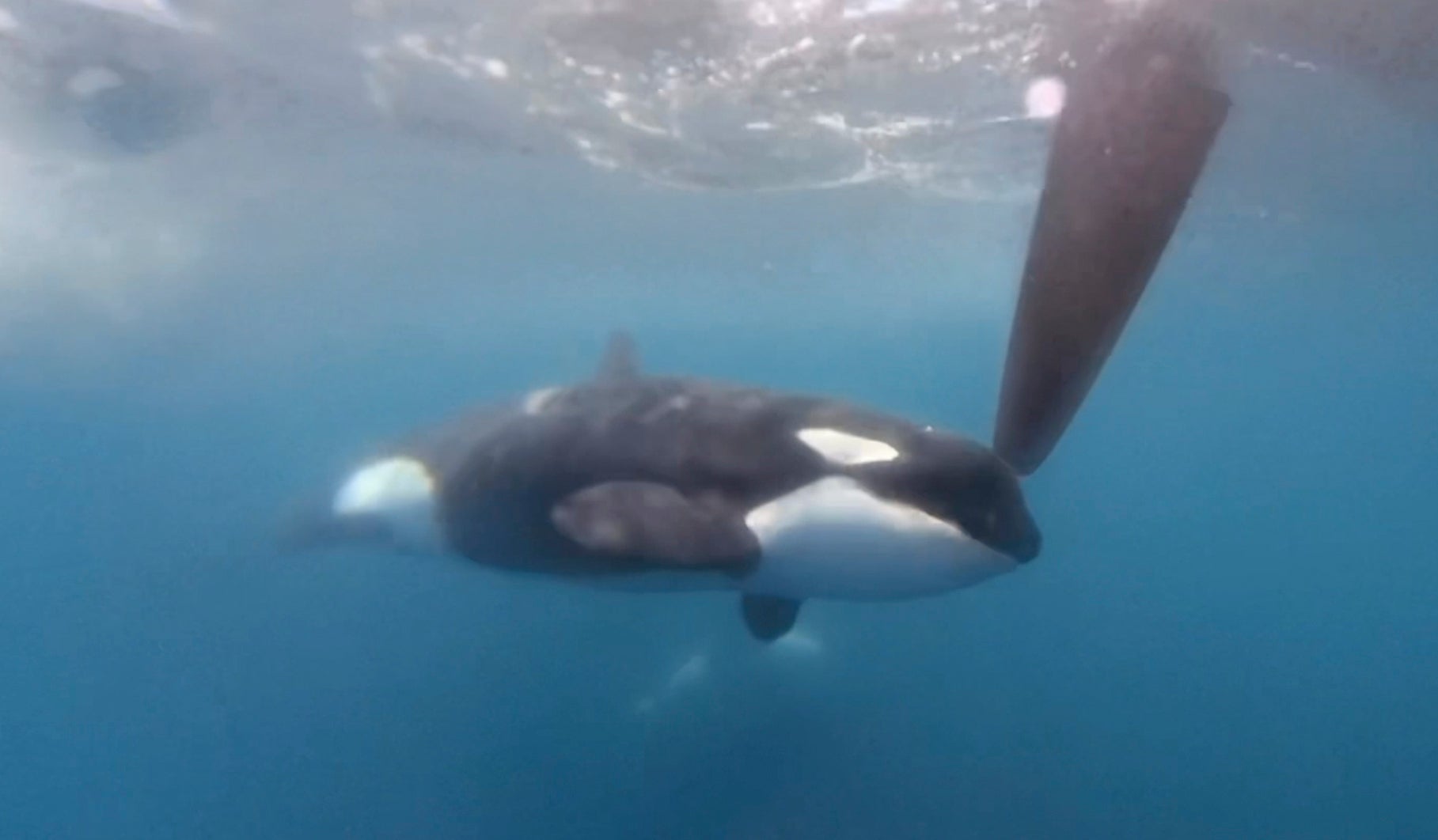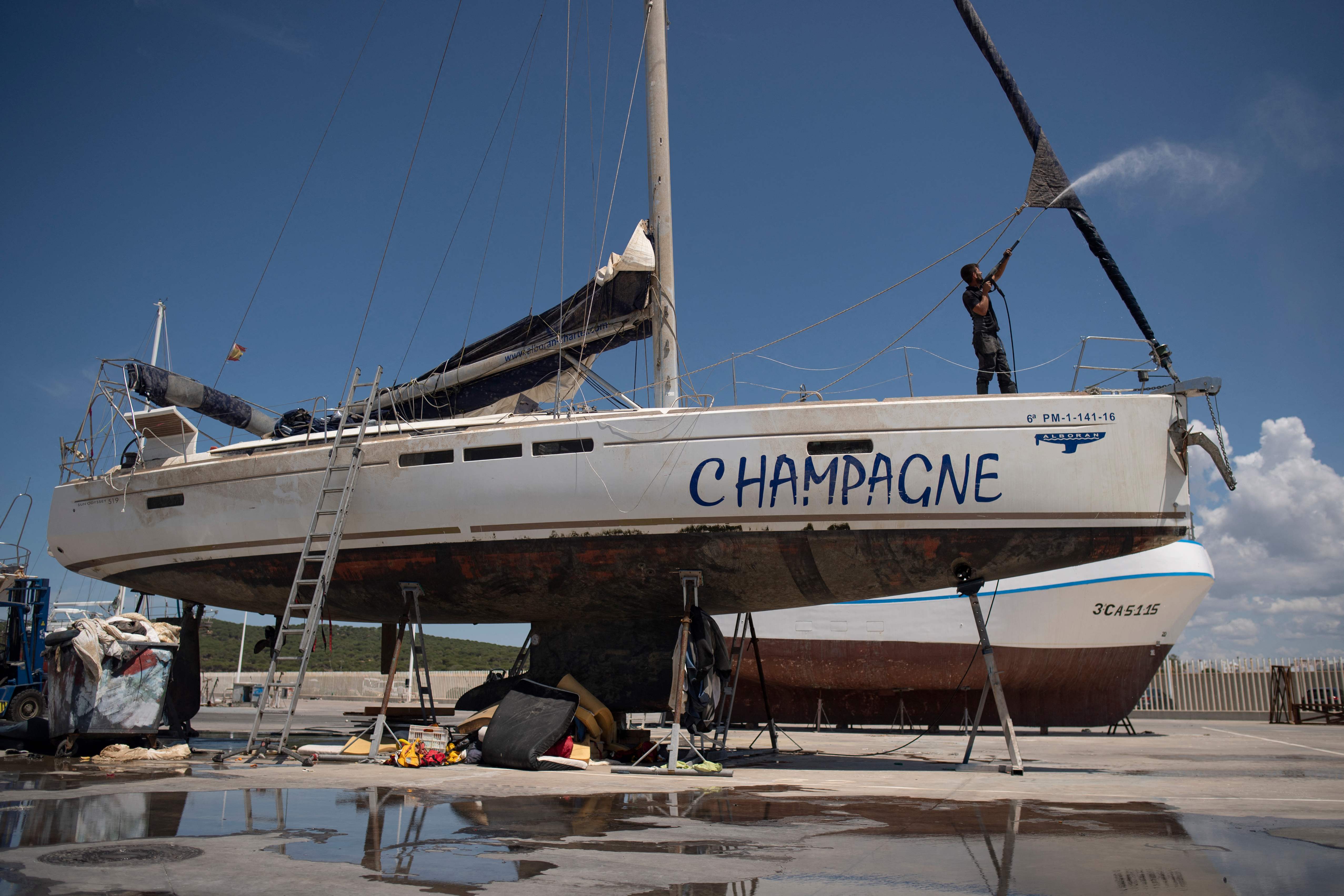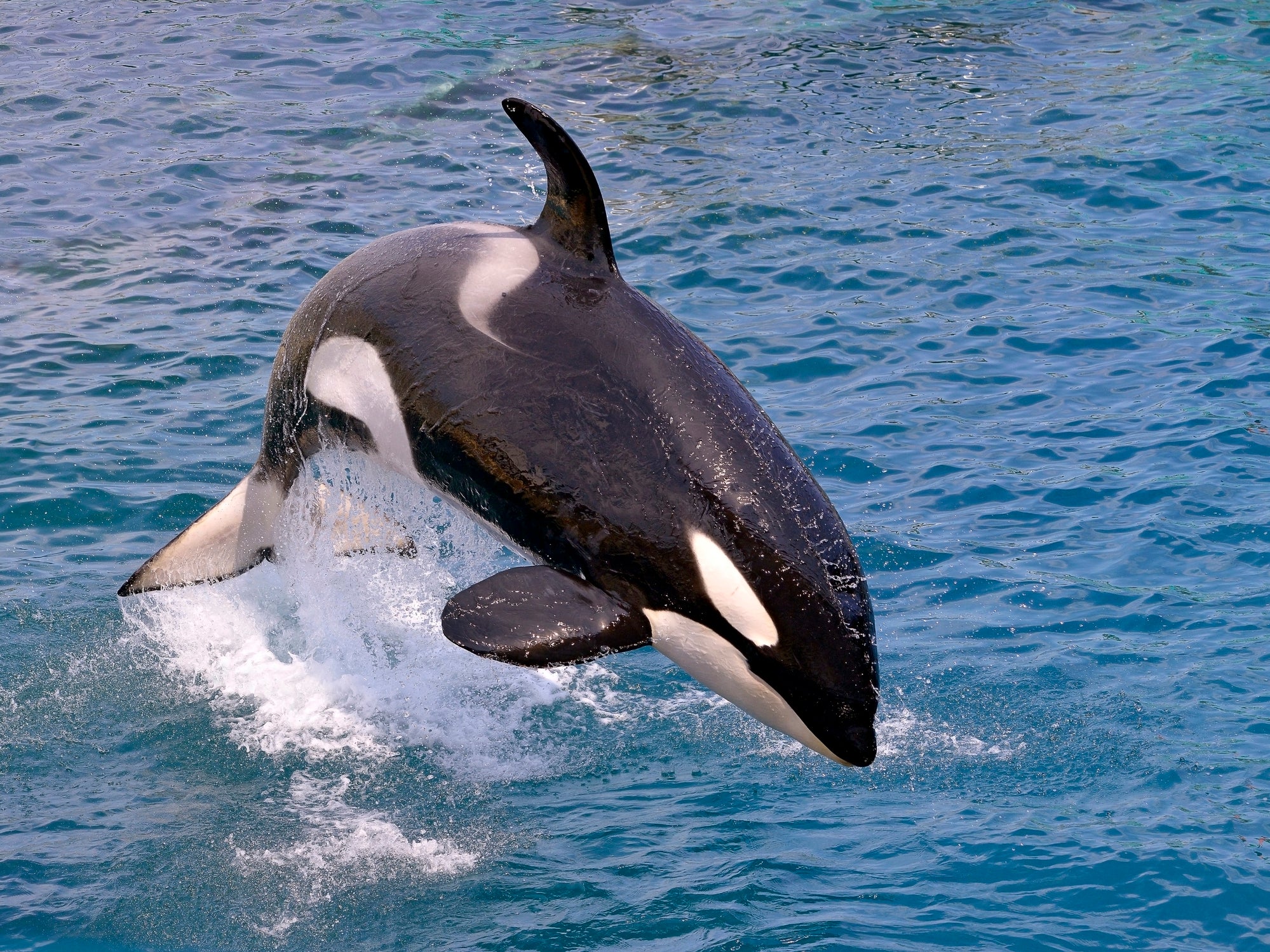Orca boat rammings in the Mediterranean are ‘just playful fad’ scientists say
More than 250 boats have been damaged by orcas since 2020, with 15 of Iberia’s orcas believed to be responsible
Your support helps us to tell the story
From reproductive rights to climate change to Big Tech, The Independent is on the ground when the story is developing. Whether it's investigating the financials of Elon Musk's pro-Trump PAC or producing our latest documentary, 'The A Word', which shines a light on the American women fighting for reproductive rights, we know how important it is to parse out the facts from the messaging.
At such a critical moment in US history, we need reporters on the ground. Your donation allows us to keep sending journalists to speak to both sides of the story.
The Independent is trusted by Americans across the entire political spectrum. And unlike many other quality news outlets, we choose not to lock Americans out of our reporting and analysis with paywalls. We believe quality journalism should be available to everyone, paid for by those who can afford it.
Your support makes all the difference.Scientists have urged people not to speculate about why Iberian orcas have been ramming into vessels, warning that demonising them could put the already endangered animal at risk.
Orcas coming into contact with vessels n the Mediterranean are most likely being playful and are not “attacking” the boats as previously speculated, after more than 250 boats have been damaged by the species since 2020.
Experts have warned the idea that the orcas intend to do harm could lead to the creatures being harmed by humans, after footage showing a sailor opening fire on a pod earlier this month.

One theory proposed by marine scientists is that the orcas’ behaviour is a ‘cultural fad’ and will likely go away as attention over the animals decreases.
There are 15 orcas believed to be responsible for the recent rammings, with damage varying from teeth marks to the sinking of five boats entirely.
In an open letter, the scientists said: “We urge the media and public to avoid projecting narratives onto these animals. In the absence of further evidence, people should not assume they understand the animals’ motivations.
“We are concerned that factual errors related to these interactions are being repeated in the media … we believe this narrative inappropriately projects human motivations onto these whales and we are concerned that perpetuating it will lead to punitive responses by mariners or managers.”

Scientists remain baffled over the behaviour of the orcas off the Spanish and Portuguese coasts, but agree they are likely being playful and socialising with each other instead of acting aggressively, the letter says.
“The whales have shown a wide range of behaviours during the interactions, many of them consistent with playful social behaviour,” the letter continues. “There is no evidence of an identifiable ‘leader’ of these interactions. Despite the damage to vessels, we believe characterising the interactions as ‘attacks’ is misleading.
“ Orcas (and other dolphin species) elsewhere have been known to develop cultural ‘fads’ (novel behaviour that briefly persists and expands within a population—an analogy might be fashion trends in people), such as carrying dead fish on their heads. While these vessel interactions may be a similar phenomenon, they are persisting longer than typical fad behaviour, expanding within the population and escalating in impact. Nevertheless, it is possible the behaviour, as previous fads have, will disappear as suddenly as it appeared.
Of the fifteen orcas believed to be responsible for the rammings, 11 are calves and four are adult females.

Iberian orcas are considered critically endangered, with possibly less than 40 in their population.
Earlier in June a sailor told how his yacht was thrown around like a “rag doll” by orcas near Gibraltar, as the mammals tore off its rudders.
“I noticed a fin then noticed a light bump and then a very big bump and looked round and there was a very large whale pushing along the back and trying to bite the rudder,” he told BBC Radio 4.
“Then we lost the second rudder so we had no mechanism of steering the boat and the whales were in charge of the boat and they pushed us around like a rag doll,” he added.




Join our commenting forum
Join thought-provoking conversations, follow other Independent readers and see their replies
Comments